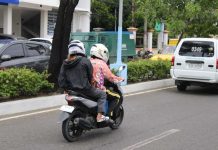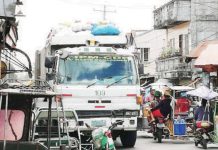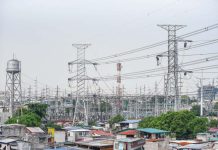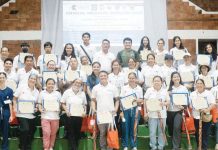
SINGAPORE – Foreign ministers from the Association of Southeast Asian Nations (ASEAN) plus Japan, China and South Korea agreed Saturday to bolster economic cooperation, voicing opposition to trade protectionism by the United States.
The ministers confirmed that they will speed up negotiations on the Regional Comprehensive Economic Partnership (RCEP), by which ASEAN is trying to forge trade partnerships with Australia, China, India, Japan, New Zealand and South Korea.
It is important to “cement our economic ties” and “conclude key initiatives such as RCEP,” Singaporean Foreign Minister Vivian Balakrishnan said at the opening of a so-called ASEAN-plus-three meeting in the city-state.
The 16 RCEP participating countries are seeking a broad agreement on their free trade talks by the end of the year.
Japan’s Foreign Minister Taro Kono also said, “I am certain that RCEP will contribute greatly to economic integration in East Asia, given the current global situation where protectionism is on the rise.”
South Korean Foreign Minister Kang Kyung Wha expressed fears about the negative impact of recent U.S. trade restrictions, while Chinese Foreign Minister Wang Yi indicated that Beijing will continue to fight the trade war initiated by Washington.
“Rising anti-globalization and trade protectionism among major countries is fueling tensions and threatening our aspiration for sustained economic growth,” Kang said during the meeting.
Wang told reporters on Saturday that China should launch a “counterattack” to the United States.
Remarks by the foreign ministers came amid mounting concern that the U.S.-China tit-for-tat tariff fight is likely to shrink trade volume worldwide, which would weigh on the global economy that has been on a recovery track.
Sales of Chinese products in the United States, one of the world’s major markets, are also expected to become sluggish, possibly dragging down the economies of ASEAN nations that have supplied components to manufacturers in China.
As well as higher tariffs on steel and aluminum, Washington has slapped additional 25 percent duties on $34 billion of Chinese imports — the first round of the tariffs worth $50 billion — for Beijing’s alleged intellectual property and technology theft.
Later Friday, China announced that it will impose additional 25 percent tariffs on 5,207 U.S. imports, worth $60 billion annually, if the administration of U.S. President Donald Trump goes ahead with the $200 billion new tariffs.
On the North Korean nuclear issue, many of the ASEAN-plus-three foreign ministers agreed to fully implement U.N. sanctions on Pyongyang in an attempt to compel the country to abandon nuclear weapons, a Japanese government official said.
At a historic summit in June in Singapore, North Korean leader Kim Jong Un promised U.S. President Donald Trump to achieve “complete” denuclearization of the Korean Peninsula in return for security guarantees from the United States.
Talks between Washington and Pyongyang on the specifics of denuclearization, however, appear to be at a standstill, while North Korea has been improving ties with China, Russia and some ASEAN countries.
Skepticism is growing that nations friendly to North Korea, like China, have deepened economic cooperation with it, eroding the impact of the U.N. sanctions designed to stop the country’s development of nuclear weapons and missiles.
At the ASEAN-plus-three gathering on Saturday, there was no discussion on whether to relax the U.N. sanctions against North Korea, the Japanese government official told reporters.
ASEAN groups Brunei, Cambodia, Indonesia, Laos, Malaysia, Myanmar, the Philippines, Singapore, Thailand and Vietnam. All the members have diplomatic relations with North Korea, although Japan does not.
In Singapore, an East Asia Summit foreign ministers’ meeting, including ASEAN members and eight non-ASEAN partners, was held later Saturday. (Reuters)







